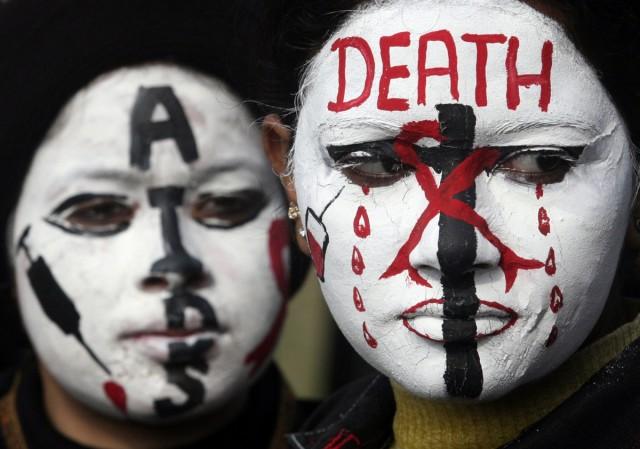
About twenty-three prisoners at the Gorakhpur District Jail in Uttar Pradesh have reportedly been tested positive for HIV in the last eight months. The incident came to light when the jail organised a few health camps.
During the camps, 23 inmates, including a woman, were found HIV positive and officials have told the Press Trust of India that they have now been examined and treated at the hospital.
In the last eight months, about 1,400 inmates reportedly underwent health checks at the jail and the remaining 400 will also soon go through tests. The Gorakhpur district jail has more than 1,800 prisoners.
Jail officials have also gotten it touch with counsellors so that the affected inmates can be guided.
Speaking of these inmates, jail superintendent Ram Dhani told the Indian Express that most of them have been jailed under the Narcotic Drugs and Psychotropic Substances Act.
"While the woman is in jail since March 2014, 16 had come here in 2016 and 2017. Seven others were lodged in jail during the last two months," Dhani explained. However, he said that the inmates were affected even before they came to the jail and the disease wasn't spread in the campus and also pegged the number at 24.
"In October last year, on the initiative of Uttar Pradesh State AIDS Control Society, a camp was started to conduct blood tests on prisoners to detect HIV. Of the 2,000-odd prisoners, over half have been tested," Gorakhpur Range DIG (Jail) Yadvendra Shukla.
"They are being treated at Baba Raghav Das Medical College and Hospital in Gorakhpur."
There have been several cases of inmates testing positive for HIV in the past, and most of these cases have been reported from areas like Bareilly, Allahabad, Gorakhpur, Lucknow, Faizabad, Agra, Meerut, Varanasi and Kanpur.
Just a few days ago, at least 40 people from a village in Unnao in UP were infected with HIV after a quack is said to have used an infected syringe to treat them.
The locals of the village used to visit the quack with various ailments and were infected with the virus as he used the same syringe on everyone, reported ANI.
A case was then registered against the quack and several health camps were also organised to examine the villagers. "Seeing the high number of cases, the health department constituted a two-member committee which visited various hamlets of Bangarmau to investigate the reasons behind the spike," Chief Medical Officer Dr SP Chaudhary explained.













